Live Reporting
- You might have received a WhatsApp message or two telling you not to take ibuprofen if you have the coronavirus.Some of these messages warn that doing this has led to several critical cases of coronavirus, especially in youth people.Speaking to the BBC, medical professionals said that ibuprofen is not recommended for managing coronavirus symptoms.The NHS says that, while "there is currently no strong evidence that ibuprofen can make coronavirus (Covid-19) worse, until we have more information take paracetamol to treat the symptoms of coronavirus, unless your doctor has told you paracetamol is not suitable for you".
- Letters are being sent to more than 65,000 retired doctors and nurses in England asking them to return to the NHS to help tackle the coronavirus outbreak.Senior officials say the ex-employees are needed to boost frontline services.Final-year medical students and student nurses could also be given temporary work to boost the ranks.
- Read the full story: Retired medics asked to return to work
- If you're waking up in the UK and turning straight to news, good morning and welcome to our live coverage. We've covered major developments from the US, Australia and across Asia so far today from here in Singapore.Later on in the UK, Chancellor Rishi Sunak is set to announce an employment and wage subsidy package to try to protect millions of jobs threatened by the pandemic.Talks went on into the night with business groups and union leaders, who urged the government to help pay wages.Many firms are warning of collapse, wiping out thousands of jobs, as life in the UK is largely put on hold.BBC Economics Editor Faisal Islam says: "All sides were speaking with one voice about an unprecedented scheme to help workers get through a temporary economic stoppage."The announcement will come just days after the government unveiled a range of financial measures, including £330bn ($385bn) in loans, £20bn in other aid, a business rates holiday, and grants for retailers and pubs.
- Sri Lanka has imposed a nationwide curfew from 18:00 pm local time (12:30 GMT) on Friday until 06:00am on Monday.The measure was announced a day after the election commissioner postponed parliamentary elections that were scheduled for next month.President Gotabaya Rajapaksa had earlier said there was no reason to postpone elections.He had been hoping to win a two-thirds majority in parliament, which would allow him to change the constitution.The country has seen a spike in cases in the last few days - the number of active infections has almost doubled in the last three days.The Government Medical Officers Association - a trade union of state medical professionals - has warned that Sri Lanka's case trajectory is even worse than that of Italy.
- China says that once again, it has recorded a day with no new local infections - that's cases transmitted within China, where the outbreak started.There were though 39 new cases. Beijing says all were imported - which means travellers from abroad thought to have contracted the virus outside China and tested positive only after entering the country.The number of deaths in China has also slowed dramatically: there were only three new fatalities, authorities say, taking the overall toll to 3,248.But there's been repeated accusations that these official figures cannot be relied on.Beijing's focus has shifted from stemming local transmissions to stopping the virus from coming back into the country from outside. It's also a major propaganda line for China which had been criticised for how it handled the early stages of the outbreak.China and many international observers say that the decline in cases is due to its drastic lockdown measures, where whole cities and provinces were essentially put into quarantine.Should the virus be reimported, Beijing is likely to point the finger at other countries for failing to emulate its progress.
- It's one of the most instinctual things to do - and also something you absolutely shouldn't be doing right now. Here's a video on why we love to touch our faces, and how we can overcome that urge.
Video content
- It's been a busy day for us here in Singapore with late breaking news from the US and early updates from our colleagues in Australia.So we thought we'd give you a glance at some of the Asia news you may have missed:
- China says it had no domestically transmitted cases for a second day - but there have been some questions over the figures.
- Philippines has banned entry for foreigners starting midnight on Sunday - around 200 Britons are affected.
- The Olympic flame has arrived in Japan despite athletes questioning whether the 2020 Tokyo games should go ahead in the summer.
- India has restricted public transport after PM Narendra Modi asked citizens to stay home.
- South Korea has said it will test all European travellers arriving for Covid-19 from midnight on 22nd March.
- As the working week ends in Sydney after days of extraordinary developments, here’s a quick wrap up of Friday:
- Three people on a cruise ship, Ruby Princess, have tested positive for the virus - prompting an urgent warning to 2,700 passengers who disembarked in Sydney on Thursday.
- Prime Minister Scott Morrison postponed issuing the national budget until October, citing economic instability.
- He also tightened social distancing rules - people in small gatherings should now be separated by at least 4 sq m.
- All workers at aged care facilities will be tested.
- Canberra also greenlit restrictions on people leaving or entering remote Aboriginal communities.
- Qantas will continue flights from London, Hong Kong and Auckland to allow Australians to get home.
- As millions of Americans are told they can't go the mall anymore, it turns out the US also might not be able to go to the Moon - or at least not when they'd hoped to.NASA's plan to return Americans to the Moon by 2024 has been dealt a blow as the space agency on Thursday ordered the shutdown of two rocket production facilities after one employee tested positive for Covid-19.The two affected sites are in New Orleans and Mississippi.
- The Olympic flame has arrived in Japan although it's anything but certain the Tokyo 2020 Games will even go ahead.The flame arrived on special chartered flight and was received by former Japanese Olympians, Saori Yoshida and Tadahiro Nomura.But the event had been dramatically scaled back. The flame was taken through a guard of honour to a cauldron in the shape of a cherry blossom. The 200 local children who were due to welcome the flame were not there.There has been mounting criticism of Japan insisting on sticking to the Olympics plans. Athletes have accused the IOC of putting them "in danger" by insisting it remains fully committed to the Games.
- American actor Daniel Dae Kim, best known for his roles in Hawaii Five-O and Lost, has tested positive for Covid-19.In a 10-minute video posted on Instagram, he shared the symptoms he had experienced but also called out the anti-Asian racism that has risen since the virus began."Please stop the prejudice and senseless violence against Asian people. Yes I am Asian, and yes I have coronavirus but I did not get it from China," he says."I got it in America, in New York City, and despite what certain political leaders want to call it, I don't consider the place where it's from as important as the people who are sick and dying."The point is, the name calling gets us nowhere. What matters is how best to take care of ourselves and one another."
- Cirque du Soleil Entertainment Group has laid off almost all of its workforce except the support team, according to a Reuters report.The Montreal-based circus company has had to cancel most of its shows worldwide. It said it would prepare to rehire when productions resume."This decision is our only option," Chief Executive Officer Daniel Lamarre said in a statement.Laid off employees will be given paid holiday, temporary insurance coverage and access to an employee support programme, he said.
- Saudi Arabia is suspending all domestic flights.Buses, taxis and trains are also being stopped for two weeks.The new measures will come into effect on Saturday morning, the Saudi Press Agency (SPA) reported.The suspension does not apply to essential flights relating to humanitarian and medical aircraft or buses used to transport people for health reasons, SPA added.More than 270 infections have been confirmed in the kingdom, but no deaths.
- Here's more on the situation in Australia, where New South Wales officials say three people on board a cruise ship that docked in Sydney Harbour on Thursday have tested positive for the virus.The Ruby Princess ship visited New Zealand before returning to Sydney. It had 3,800 people on board, including around 1,000 crew.Urgent efforts are now being made to contact the more than 2,700 passengers who disembarked at Circular Quay, in Sydney's city centre."Our big concern, the very big concern, is that those people came off the cruise with no knowledge of [Covid-19] actually being on their ship," state health minister Brad Hazzard said.He said two passengers and a crew member had tested positive. A fourth person, suspected of having the virus, has already returned to Tasmania.Those passengers should have been quarantining anyway - under new rules ALL arrivals in Australia have to self-isolate for 14 days.
- With Prime Minister Narendra Modi asking all citizens to stay home to avoid the spread of the coronavirus, India's massive public transit systems are severely curtailing services.Public transport remains the main mode of travel for a majority of the country's citizens.In the northern state of Punjab, all public transport has been suspended with immediate effect.In the capital Delhi, the metro rail service in the capital Delhi will no longer stop at crowded stations, train frequency will be altered, and there will be random thermal scanning of passengers.In Mumbai, there is talk that the local railway lines - considered the lifeblood of the city - could be halted in coming days. Uddhav Thackeray, the chief minister of Maharashtra state where Mumbai is located, said he "wants to see empty trains".Buses in major cities will also no longer allow standing passengers, and the number of buses that ply has been halved in most cities.
- Crowds of US university students have flocked to Florida for their spring break, defying recommendations from US authorities of social distancing and self-isolation to prevent the spread of the new coronavirus.National health officials are advising against gatherings of 10 or more people. But these spring breakers appear to have other ideas.
Video content
Video content
India had tested some 14,175 people in 72 state-run labs as of Thursday evening - one of the lowest testing rates in the world.Why is a densely populated country with more than a billion people testing so little?The official assumption is the disease has still not spread in the community. Health authorities say 826 samples collected from patients suffering from acute respiratory disease from 50 government hospitals across India between 1 and 15 March tested negative for coronavirus. Also, hospitals have not yet reported a spike in admissions of respiratory distress cases.But experts are not so sure.Many of them believe India is also testing below scale because it fears that its under-resourced and uneven public health system could be swamped by patients.- You would have heard by now that washing your hands is one of the most important and effective ways to keep the coronavirus at bay - but you shouldn't be doing just a quick rinse. Here's a quick video to explain the correct technique.
Video content
- Australia’s ban on all visitors entering the country – which starts in about six hours – is the nation’s most far-reaching travel restriction yet.Only citizens, permanent residents and their families can travel to Australia after then. (Read more here)What’s less clear is what happens to people like me: temporary visa holders and their families. I live in Australia for work purposes as a BBC correspondent. My husband, Ahmed, and I have a visa that allows us to stay here for two years – he is mostly based in the UK and comes to visit and stay with me when he can.He’s now here in Sydney and is due to fly back to London next week. Once he’s out, we don’t know when he might be able to come back; and if I go to visit in London, whether I’d be allowed back here. We also have family in Egypt and Canada.For many like us, planning holidays to visit relatives is complicated in the best of times.But the travel ban puts into question when any of us will be able see loved ones again.
- With all the focus on the US and California right now, the virus remains a global story and one by one is spreading to new countries.The story is very different in each country, but there are some more vulnerable than others.Here's one we think is important to point out: Haiti just had its first two cases. The country is already suffering from widespread poverty and the poor health care system would likely be unable to handle a widespread outbreak of the virus.Haiti was one of the last Caribbean nations to remain coronavirus-free and had already stopped flights from many international destinations earlier this week in a bid to prevent the disease's entry.The country declared a state of emergency, closing borders and imposing a curfew.If you want to keep on overview of which countries have cases and how many there are many places online that give you numbers.

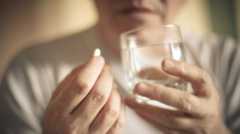

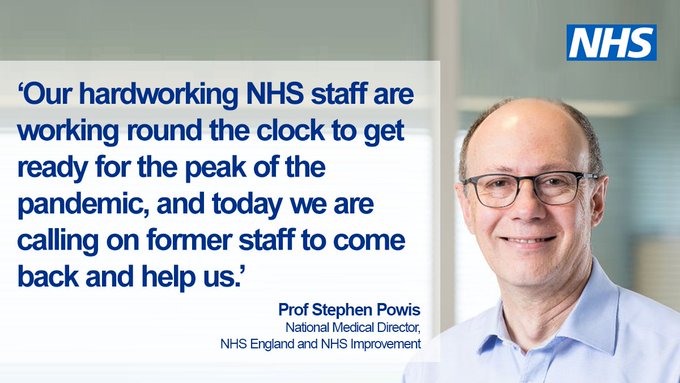
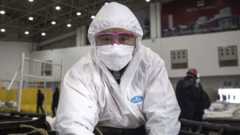
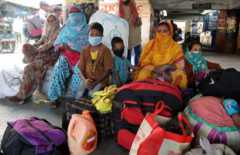
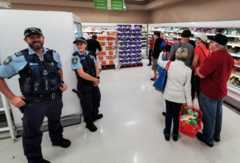
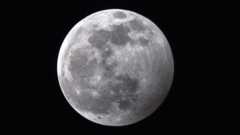
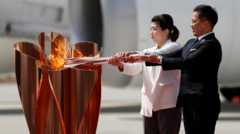


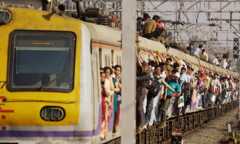

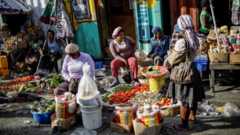
No comments:
Post a Comment